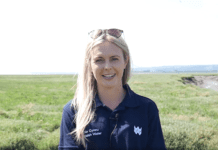Following Britain’s recent vote to leave the EU the nature of travel is set to undergo some big changes, including tourists’ attitudes to speaking foreign languages when heading off on holiday.
A study by Thomson Lakes and Mountains has shown that 44% of Welsh people would prefer to learn a new language through lessons rather than using apps or going online.
The research also revealed a split in generations as to how important native language skills are. Sixty-three per cent of 25-34 year-olds say their language skills affect where they go on holiday, while 84% of over 65s are a bit braver when it comes to holiday-making decisions and their ability to speak fluently while away doesn’t affect this.
The people of Wales are more likely to revert to traditional methods of learning when studying a new language according to recent research.
In contrast, differing generations seem to sit in two distinct camps. Older generations get the most enjoyment from attempting to speak the language, with 33% of over 65s and 27% of 5564 year-olds saying that they get a high level of satisfaction. This sits in discrepancy with 11% of 18-24 year-olds and 12% of 25-34 year olds that didn’t.
In conjunction with the survey, Thomson Lakes & Mountains have also created an interactive quiz, which is designed to test the general public’s foreign language knowledge in a fun way.
She added: “Our survey aligns with the British Council’s recent findings that the younger generations need more confidence in their ability to speak another language, but expands on why this might be. It seems that across the board travellers get more from traditional methods of language learning, such as classes and comprehensive programmes. Older generations are perhaps more confident due to age, but also perhaps because they have a stronger foundation in conventional learning methods. However, it is great to see that 86% of those surveyed always attempt to speak a local language while on holiday in some form or another and our interactive quiz aims to help them test their abilities and give it a go.”
Vicky Gough, Schools Adviser at the British Council, said: “While it’s good to see that many of us are generally willing to have a go at speaking the local language when on holiday, this latest research confirms that too many of us still rely too heavily on English while abroad.
“The reality is that speaking a foreign language doesn’t just help you to get the most out of your holiday it is a rewarding way to connect with another culture and, with employers now crying out for more language skills, it can boost your job prospects too. We could all stand to benefit from broadening our horizons that little bit further through language learning and trying out just a few words or phrases while on holiday is the perfect place to start.”
You can find the interactive quiz here: http://www.thomsonlakes.co.uk/langwhich/
Help keep news FREE for our readers
Supporting your local community newspaper/online news outlet is crucial now more than ever. If you believe in independent journalism, then consider making a valuable contribution by making a one-time or monthly donation. We operate in rural areas where providing unbiased news can be challenging. Read More About Supporting The West Wales Chronicle























